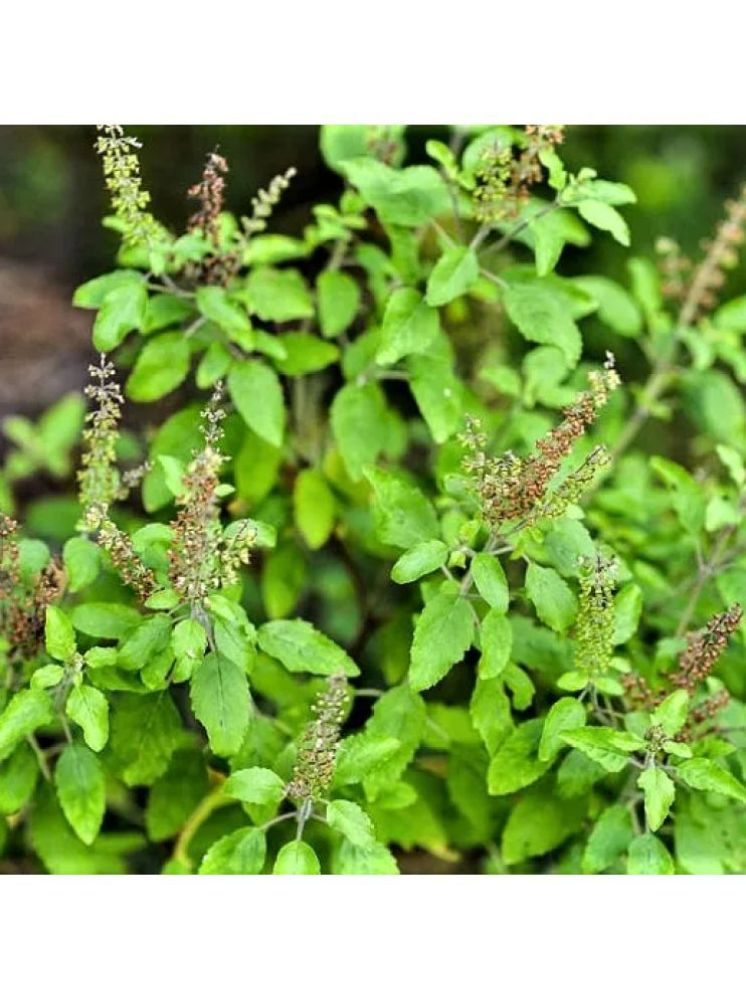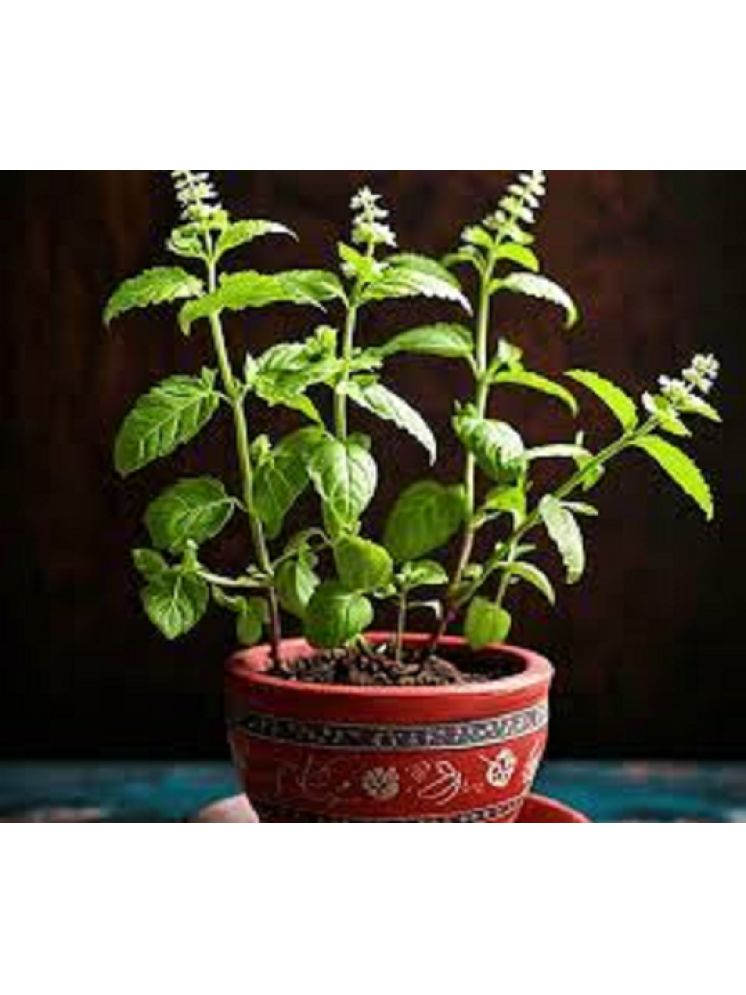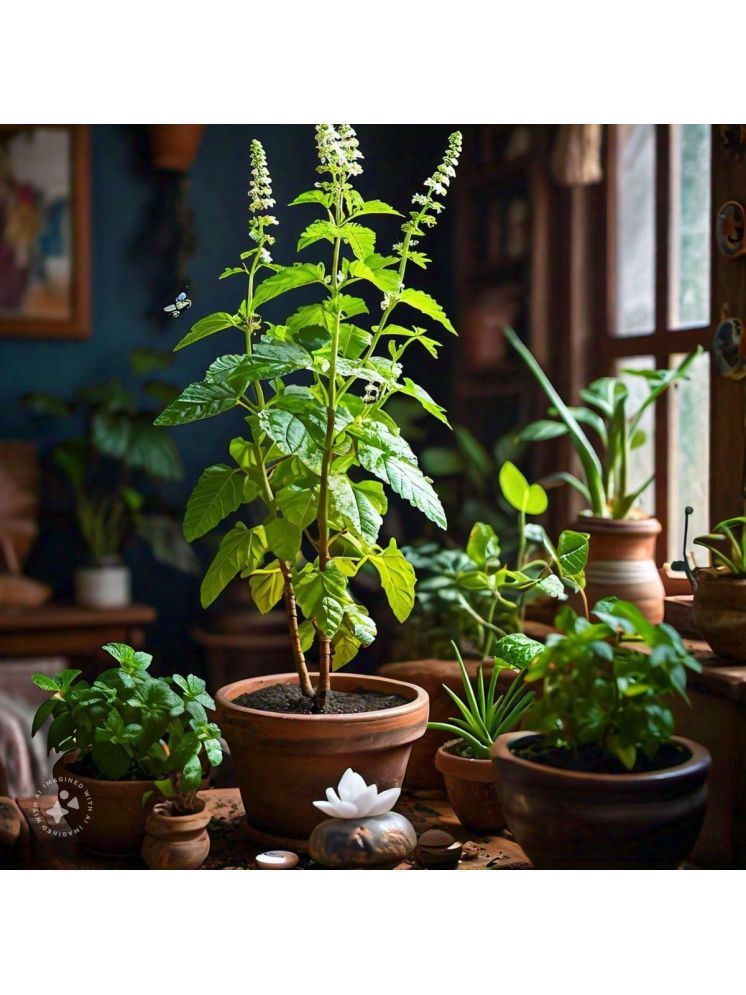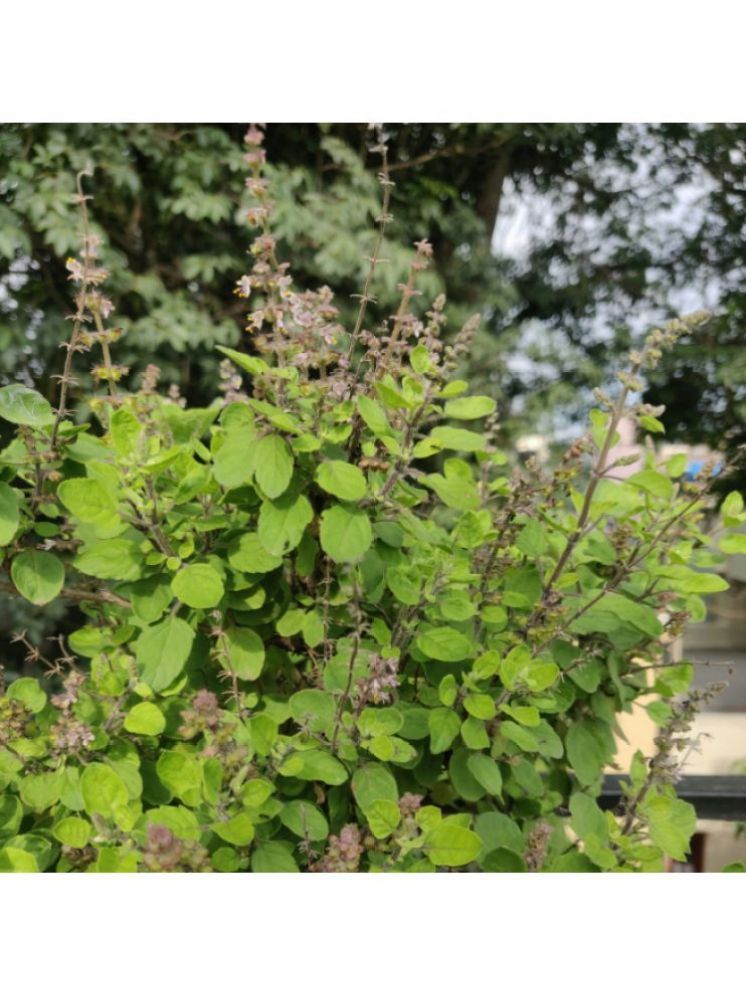Enhance your garden with the sacred and aromatic Tulsi (Holy Basil) plant using this pack of 100 seeds from Vedhahi Seeds. Known for its medicinal properties and spiritual significance, Tulsi is a must-have herb for every household and also include a dual-purpose safety box that serves as both. As a seeds safety box and as germination tray for seedlings, ensuring seeds remain undamaged and viable for years.
Features:
Sacred Herb: Revered in Indian culture, Tulsi is often grown for its spiritual, medicinal, and culinary uses.
Easy to Grow: Suitable for both indoor and outdoor planting, making it accessible to all gardeners.
Medicinal Benefits: Tulsi is known for its antioxidant, anti-inflammatory, and stress-relieving properties.
High Germination Rate: Ensures a plentiful yield of healthy Tulsi plants.
Planting Instructions:
Soil Preparation: Tulsi thrives in well-drained, fertile soil with a pH of 6.5 to 7.5. Enrich the soil with organic compost for best results.
Sowing: Sow seeds directly in the garden or start them indoors 6-8 weeks before the last frost. Sprinkle the seeds on the soil surface and lightly cover them with soil.
Watering: Keep the soil consistently moist until the seeds germinate. Once established, water moderately, allowing the soil to dry slightly between waterings.
Sunlight: Tulsi requires full sunlight for at least 6 hours a day for optimal growth.
Care: Regularly pinch the tips of the plant to encourage bushier growth. Fertilize lightly with an organic fertilizer every few weeks.
Growth and Harvest:
Growth Habit: Tulsi plants can grow up to 1-2 feet tall with a spread of 1 foot.
Harvesting: Harvest leaves as needed, preferably in the morning when the essential oils are most concentrated. Regular harvesting promotes new growth.
Uses:
Culinary: Tulsi leaves are often used in teas, salads, and as a garnish in various dishes.
Medicinal: Tulsi is known for its numerous health benefits, including boosting immunity, relieving stress, and improving respiratory health.
Spiritual: Tulsi is traditionally used in religious rituals and is considered a sacred plant in many cultures.




